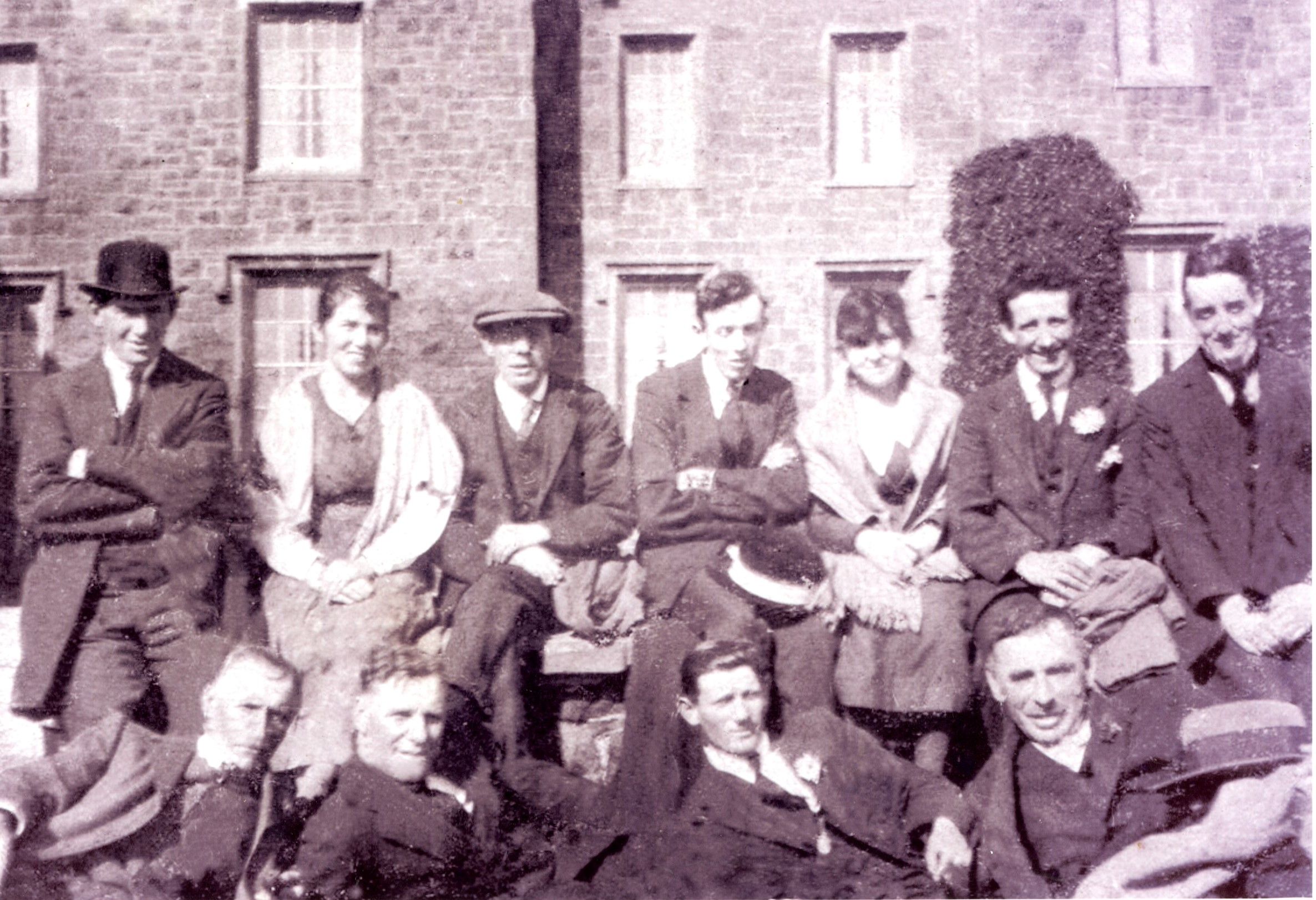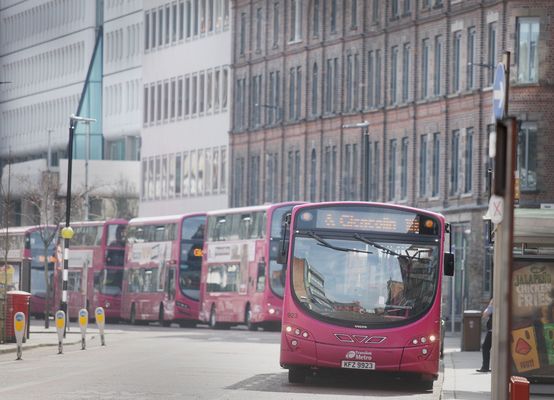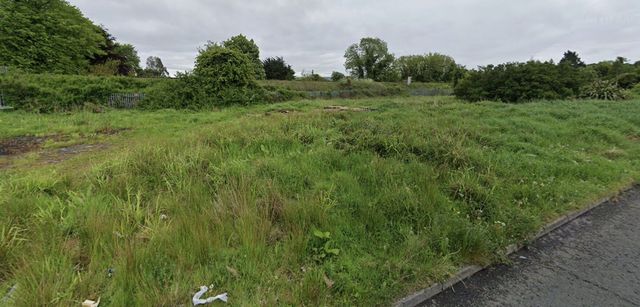IN this decade of centenaries, whilst it is deeply uncomfortable for many to look back and reflect, it is nonetheless important as the violence that was prevalent in the early decades of the 20th Century would go on to have a direct influence on the recent conflict which engulfed the North for over 30 years.
One such story is being remembered 100 years on.
The story is important, not just because of the tragic deaths of the individuals involved, but also because it highlights how issues such as sectarian violence, discrimination and collusion would have deadly consequences for one Belfast family through the generations, and involve the killings of two innocent men, both named Jack Duffin, who would be killed in incidents almost exactly 70 years apart.
The story begins in 1900 when John Duffin and his wife Sarah moved to Walmer Street off the Ormeau Road from Larne, after facing sectarian harassment in the town, and also because John, a skilled stonemason, was attracted by the ongoing work in the construction of Belfast’s City Hall and Clonard Monastery.
When they moved, the family also brought their four children: Jimmy, Jack, Tom and Dan. Jimmy and Jack, like their father, became stonemasons, and John and Jimmy worked on both the construction of City Hall and Clonard Monastery. Their brothers Tom and Dan soon set themselves up as shoemakers. The Duffins would go on to have six more children after their move to Belfast – Ettie, Molly, Kate, Charles, Madge, Lawrence and Elizabeth, who died as a young child.
The eldest son Jimmy passed away in late 1917 due to complications caused by tuberculosis, leaving Jack Duffin as the eldest.
Jack Duffin was 27-years-old in 1922, and his nephew, also named Jack Duffin, describes him as a generous and active man, popular within the community and a well-known sportsman.
Jack said: “My uncle was a keen sportsman, we can’t say with 100 per cent accuracy but we believe he played football for either Rosario FC or Ramblers FC, a local team in South Belfast at that time.
Jimmy Duffin, left, with Ned Colston who was with Jack Duffin when he was shot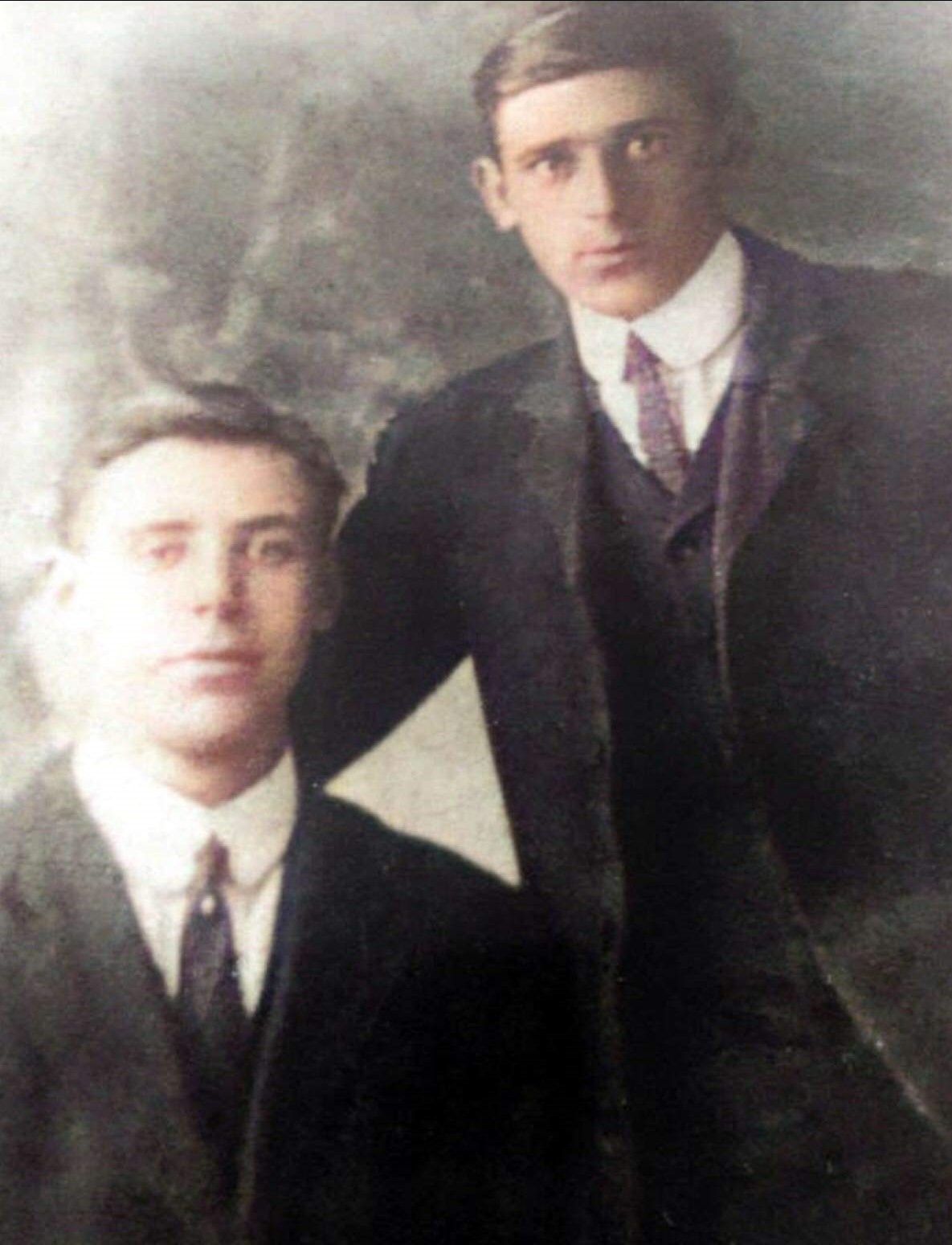
"What we do know is that the day after he was killed, he was due to play football on the Flax Pitches in Ardoyne, and the teams called off the game out of respect to his memory. He was also a keen member of the Holy Rosary Dramatic Society, a talented snooker player and was widely known in the community for his charitable work, particularly concerning the elderly.”
On the afternoon of 17th February 1922 Jack Duffin was standing outside his house with family friend Ned Colston, when armed men approached him and fired revolvers. Jack was hit, and not wanting to draw the armed gang to the house and risk putting his family in danger, he ran towards the Ormeau Road, and being gravely wounded, collapsed on the corner of Deramore Avenue. He was rushed to the Mater Hospital, but died the next day.
His friend Ned Colston managed to escape unharmed, but was soon forced to move to the USA, in fear for his life.
Jack’s nephew said: “It’s believed that Jack wasn’t the intended target that day, and they were instead looking for his brother Tom, who was alleged to have been a member of the Anti-Treaty IRA.”
It is strongly believed that the armed gang who carried out the killing of Jack Duffin was no less than the infamous ‘Cromwell Club’ gang. The gang was comprised of members of the newly formed RUC, and were former members of the Royal Irish Constabulary. The Cromwell Club gang was notorious in Belfast during the partition of the island, and in a city already engulfed in horrific acts of violence, their deeds stood apart as some of the most bloody, and vengeful.
DI Nixon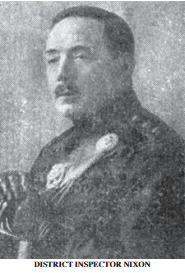
Led by District Inspector John William Nixon and County Inspector Richard Dale Winnet Harrison, the gang was responsible for a shocking series of massacres including the killings of Pat and Dan Duffin (very distant relations, but unknown to the Walmer Street Duffins) at 64 Clonard Gardens, Belfast on 23rd April 1921. The police killers were so hasty in their murders of Pat and Dan Duffin, that they even left behind their service dog in the house, with an officer having to come back later after the shooting to collect the animal.
The event caused outrage in Ireland and abroad and the killings were brought up in Westminster by Nationalist MP Joseph Devlin in June 1921.
The Cromwell Gang also perpetrated the McMahon family killings on 24th March 1922 wherein five members of the McMahon family, and a family friend were forced to kneel before the gang before being killed in retaliation for the IRA killing two policemen the day before. It is believed that Owen McMahon and his sons were targeted by the gang because he was a prominent businessman and bar owner, and close friend of Nationalist MP Joseph Devlin. All victims of the massacre were innocent civilians, with no links to politics or paramilitary groups.
Jack Duffin who was murdered in February 1992
The link between the killing of Jack Duffin in 1922 is notable in that his brother Tom Duffin, the intended target, would also have a son named Jack. This Jack Duffin, also a stonecutter, would become the eldest victim in the Sean Graham Bookmaker Massacre perpetrated the UDA on 5th February 1992, just shy of 70 years after the murder of his uncle.
Speaking this week on the 100th anniversary of his uncle’s murder, Jack Duffin, a cousin to the Jack Duffin murdered in 1992, said: “It’s been a long time since there’s been anyone around who would have had personal memories of Jack Duffin, but we’re having a commemoration for him, and also my cousin, Jack Duffin.
Tom and Jack Duffin at this week's commemoration at Walter Street 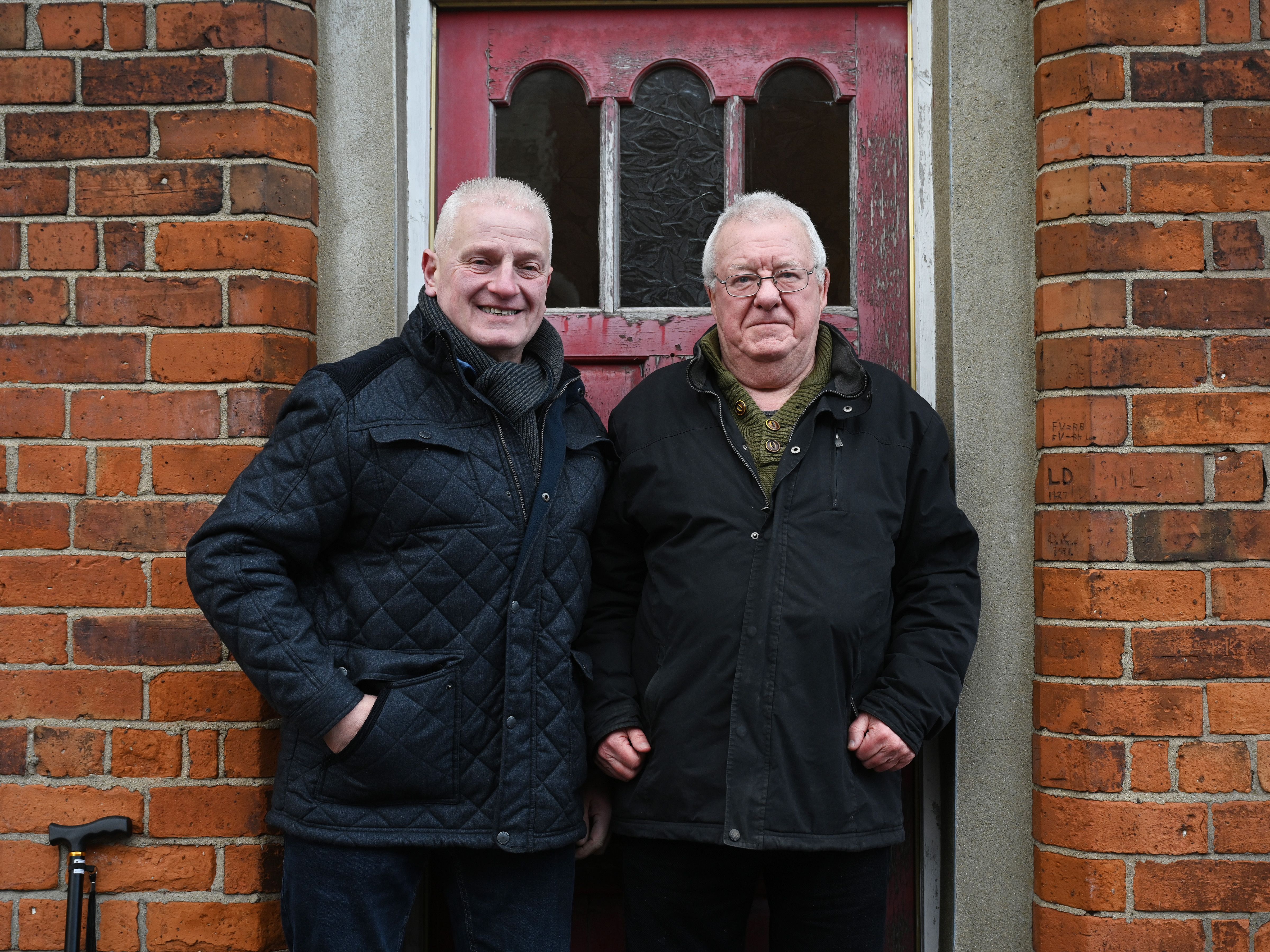
"In 1922 Jack Duffin was very likely murdered by the same gang who five weeks later massacred the McMahon family in Kinnaird Terrace. Seventy years later, also in February, also off the Ormeau Road, my cousin and Jack Duffin’s nephew, who was also a stonecutter, was murdered in the Sean Graham Bookmaker’s Massacre.”
Recent findings by the Police Ombudsman have conclusively found that the perpetrators of the Sean Graham Bookmakers massacre colluded with elements of the RUC, with one of the gunmen being a known agent of the police, and also with the weapon used in the attack being linked to the RUC.
The killings of two members of the same family, both named Jack Duffin, 70 years apart is striking in that it shows how one family's tragedy can poignantly tell the story of the brutal founding of the Northern Ireland state, and also of behaviours that were inherent in that same police force seven decades later to support its existence.

